
It is the diversity of the land of Australia that makes it stand out among many nations following the western culture and lifestyle. The beautiful mountain ranges, lush greenery of the tropical rainforests, golden expanse of deserts, acres and acres of grazing lands have always enamored tourists. The coral reefs with a rich stock of marine life always attract people from all around the world to take a tour of the place or even decide on relocating to this beautiful island country.
Being surrounded by the majestic Pacific and Indian Oceans is endowed with great agricultural results, huge variety of life-stock and beautiful plants to create unadulterated natural beauty. The earth surface is majorly flat with a widespread mountain range stretching through the eastern coast of the nation.

Sydney is the state capital of New South Wales and most populous city in Australia. The Global Economic Power Index ranks Sydney number eleven in the world. The central business city is located on Australia's east coast and has a thriving area that people of all ages enjoy their lives in. Sydney is known for the spectacular panorama of its Harbor Bridge, marvellous Opera House, urban green spaces and popular beaches. For students taking business and technical courses, this is a wonderful place to study and grow. Starting from living in a multicultural setup with a population of almost 4 million to getting accustomed in a non-discriminatory atmosphere, the students enjoy a perfect condition to be prepared for a business setup. People from different ethnic backgrounds get a perfect platform to mix with each other and exchange cultural nuances.

If few extremities are ignored, Sydney has an overall temperate weather condition. It never snows in the region, while Summer is warm and humid. As the nation is in the southern hemisphere, the weather condition in different seasons are reversed from USA or UK and a large part of Asia. The youth usually heads off to the beach during the summer months from December to February for enjoying different types of outdoor activities.

The visual and performing arts communities of Australia carry forward the long-forgotten tradition of indigenous art and culture of 40-60,000-year heritage. The performers and artists have received worldwide acclaim and accolades for making the present generation relive the vibrancy and vivid poignancy of a bygone era. Australia was a collection of British colonies; therefore, its visual and theatrical traditions have strong links to the broader traditions of English and Irish literature, British art, and English and Celtic music of Western Europe. The tradition followed by the native Australians leave its mark on the fields of literature, art, dance, music, and cinema. The magic lies in the interconnected layers of traditional and modern elements in all art forms.

Australia is one of the vibrant and multicultural countries in the world. It is the home to the world's oldest continuous cultures with more than two seventy ancestries. There are around 100 ethnic groups in Australia, the fact that makes it one of the most diverse cultural diaspora in the world. The diversity stems from the layers created by the Indigenous culture, effect of the immigrants and early European settlements in Australia. According to statistical reports, one in four Australian were born overseas, and one in two Australians have an overseas-born parent. People born in the United Kingdom is the largest group of overseas-born residents in Australia, followed by New Zealand, China, India, and Vietnam. Aboriginal Australians make up approximately 2.5% of the population. It is estimated that migrants contribute over AUD $10 billion to the Australian economy in their first ten years of settlement. Australian diverse migrant communities have a great influence on modern Australian food habit, lifestyle, cultural practices. In 1975, the Racial Discrimination Act came into force, making discrimination against the Australian law. Most of the new migrants say that they feel a strong sense of belonging to Australia and feeling deepens over time.
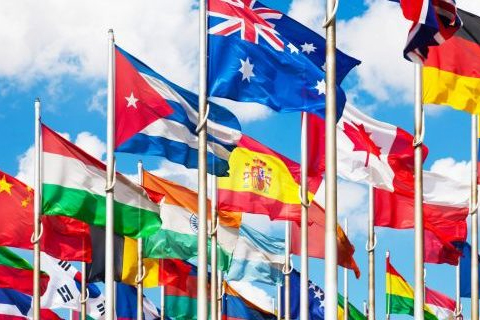
Religion in Australia is diverse. People from all religions are free to practice their respective spiritual beliefs. There are many churches, temples, synagogues, monasteries, and mosques located in different parts of the nation that are open to all people of Australia and the others coming to the nation. Australia also has a strong tradition of secular government.

Although Australia has no official language, English is considered as the national language. A host of other languages are also spoken in Australia like Mandarin, Arabic, Cantonese, Vietnamese, and Italian. As one of the most culturally diverse countries in the world, more than half a million Australians speak in a language of Asian and European Union, apart from English.

Australia is rich in arts and is keen to preserve and display its diverse cultural heritage. Australians are environmentally conscious and intense to protect its natural beauty, flora, and fauna.
Australia also offers luxury and modernity in terms of hospitality, transport, shopping arcade. Students come to Australia from all over the world to take advantage of our world-class education.
Australia is safe for studying, living and travelling around.

Australia offers universal healthcare facility. Australians pay a Medicare levy (additional tax) to fund the public health system and ensure everyone gets access to public doctors, hospitals, and other healthcare services. People who pay extra to a private healthcare insurance fund receive certain privileges. Most of the Australian institutions provide special health care services and advice to students. International students are required to have Overseas Student Health Cover (OSHC) for the duration of their student visa. It is mandatory for all international students in Australia, to have an OSHC policy. Australian Health Management OSHC, NIB, Alliance Global Assistance, BUPA Australia, and Medibank Private are only able to provide OSHC cover.

Australians indulge in a wide variety of food. You would love the great quality meat, fish, fresh fruits and vegetables that are even exported overseas. Australians produce fresh organic food to take good care of your physical health. No matter which part of the world you are from, you feel absolutely at home with the great variety of tastes you get here. The beautifully decorated restaurants offer overwhelming hospitality along with appetizing food to ensure a great time out of your work and education session. The cosmopolitan social order of the nation has serially undergone frequent influx of great tastes from all around the world.

In Australia, you can have access to a voltage of 230V 50Hz. Travelers from Africa, Asia or Europe go to different cities of the nation for higher studies or work. Students or professionals can access the mains voltage for efficient, seamless work at offices or home. Unlike the nations like Japan, Canada or USA, (100/120V) you do not need to use a voltage converter for operating high-end appliances.

The transport system of Sydney features a comprehensive network of train, bus, and ferry services. You can recharge Opal smartcard to use on trains, buses, ferries and light train. NSW Government's site (https://transportnsw.info/#/) can help you to calculate the best way to get from one place to other while travelling to or around Sydney. It also provides fare and schedule time. Sydney train services run from 4 a.m. to around midnight on most train lines. All stations have 24-hour ticket vending machines. Buses travel through the city and beyond almost 24-hours a day. There are ticket outlets all over the city. Taxis can be booked directly with numerous private taxi companies operating across the city. If you do not have an Opal card, you will need to buy an Opal single trip ticket. But an Australian student can get Concession Opal card, but the International students are only entitled to concession fare when their study is fully funded by specific Australian Govt. scholarships. The airport line operates from all City Circle stations to the domestic and international terminals in every 10 minutes. You can also avail a trip across beautiful Sydney Harbour on a ferry. A bicycle is also a great way to get around in Sydney.

Sydney Opera House is the best example of the wonderful range of entertainment options in Sydney. Enjoy your old-favourites, art-house classics, theatre plays; watch latest movies; explore Australian orchestra and ballet. Students from all around the world come to live in Sydney for studies or work. They get to enjoy their choices of entertainment activities in and around the city. Apart from cinema, you can spend enjoyable time at different Art festivals, writing festivals, etc. On weekends you can spend some reclusive moments on the beach while enjoying some fine Australian beer or just unwind yourself in city's popular theme-based bars.

As the nation is surrounded by an amazing coastline, people living in Australia and tourists get to enjoy a number of recreational water sports like Scuba Diving, Surfing, Water scooting, Parasailing, Water Skiing, Kayaking, Paddle boarding, and Swimming, etc. Moreover, the Australian youth and people on work or student Visa have ample opportunity to enjoy different other types of sports like Rugby, Baseball, Soccer, Cricket, Tennis, Biking, etc. you will find outstanding sports and recreation facilities at Sydney Olympic Park, Ian Thorpe Aquatic Centre, etc. The lush green city spaces are ideal for versatile playgrounds. With great weather year-round, people enjoy fantastic outdoor attractions in nearby stunning beaches.
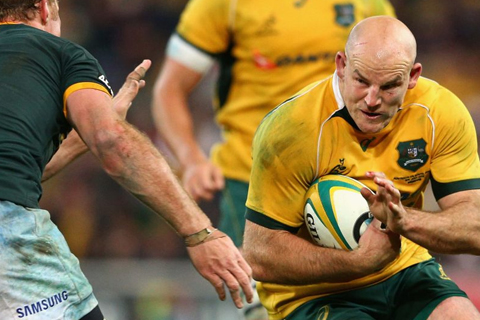
Australia has a modern telecommunication system with mobile and internet access generally available at low cost. Enjoy a seamless telecommunication service along with VoIP system and fibre connections. VoIP phone interfaces are user-friendly and offer unlimited call, text messages, instant messaging services and video conferencing capabilities. Companies provide full installation and customer care support. Public telephones are available at all Post Offices, shopping centres, and are often situated on street corners. Public pay phones accept a variety of coins and phone cards. Phone cards are pre-paid for use in public pay phones and can be bought at many retail outlets in denominations of AUD $5, $10, $20 and $50. Credit phones take most major credit cards such as American Express, Visa, MasterCard and Diners International and can be found at international and domestic airports, central city locations and hotels. Mobile phones are very popular and can be purchased from a number of retailers. The National Broadband Network (NBN) and alternative networks providers deliver fast and unlimited internet data with maximum 100Mbps download speed and 40Mbps upload speed.

It is always a good idea to open a bank account by submitting your visa and residency proof. Lots of banks are globally networked in Australia. You do not have to wait until you have landed in Australia to get a Student bank account. Most of the banks allow opening an account before three months of your arrival. You just need to fill up the application form on your chosen bank's website. Upon your arrival, you have to book an appointment at your local branch to prove your identity. You need to take along your Passport, address proof, and certificate of enrollment. Most shopping malls have ATM facilities which can be used for cash deposits and withdrawals 24-hours a day. Supermarkets have Electronic Transfer Terminals where cash withdrawals can be made to purchase more. Australian Post also offers banking services. Salary, wages, and government benefits are paid directly into bank account. If you need to transfer money overseas from Australia, you can do it either online or through banks. Banking hours are usually 9.30 a.m. to 4.00 p.m. Monday to Thursday and until 5.00 p.m. on Friday. Some branches can be found open on Saturday mornings.

American Express, MasterCard, Visa, Diners Club, Bankcard, and JCB credit cards are accepted in Australia. But it is good to carry a little cash because many shops do not accept cards for purchase under AUD $15. Merchants may impose credit card surges in some circumstances.
To get a debit card you need to open a transaction account first. Many banks offer debit cards with zero account keeping fee and ATM withdrawal fee. If you have an overdraft attached to your account, you will be able to use the debit card with zero balance. However, it will charge interest and a hefty fee.
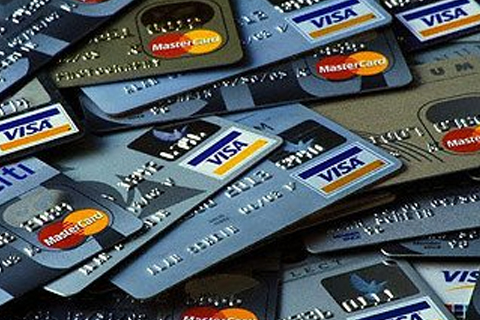
Australia's national currency is the Australian dollar. Each dollar is divided into 100 cents. It comes in denominations of AUD $5, $10, $20, $50 and $100 notes. Silver-colored 5, 10, 20 and 50 cents and gold-colored AUD 1$ and 2$ are also used.
Currency exchange is available in banks, hotels, and international airports. ATMs are widespread in the city but may be limited in remote towns and outback.
Polymer banknotes of Australia offer high security benefits and its concepts of cleanliness, environmental responsibility and recycling technology are the best examples of world-class standards.

There is no exact limit to the amount of money you can bring in or out of Australia. When you first arrive, money with other countries it can be exchanged in international airports, banks, and major hotels. If you arrive excess than AUD $10,000 cash (Australian dollars or foreign equivalent), you have to declare it to the Australian Customs at the airport. If you are carrying promissory notes, traveler's cheque, personal cheque, money or postal orders, you are required to fill in a Bearer Negotiable Instruments (BNI) form. You will not be taxed at the time of transferring money into Australia but will be taxed on the interest earned once you will have a bank account in Australia. Your Tax File Number is linked with your bank account thus the Australian Tax Office has records of your all bank activities. Therefore, it is always good to open your Australian bank account before you leave for Australia.
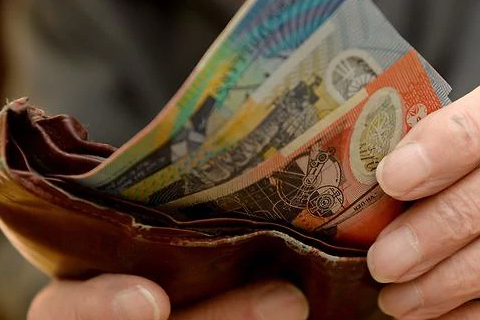
Sydney the oldest, biggest, and most beautiful of all Australian cities, spectacularly draped around its glittering harbour and coral beaches; it has the visual wow-factor like few other cities. Thousands of travellers come to Circular Quay at peak hours, cafes and restaurants line the waterfront, and street performers entertain visitors. You can walk from Circular Quay to the city's top attractions. Glide along the harbour on a ferry and admire the elegant arch of the Harbour Bridge, see the white sails of the Opera House, visit the wonderful Royal Botanic Garden, Museum of Contemporary Art, and country's first European settlement site, Rocks historic area. Don't forget to explore Darling Harbour, Madame Tussaud's, Wild Sydney Zoo, Taronga Zoo, Sea Life Sydney Aquarium, Barangaroo Reserve, old streets in Australia, Hyde Park, St. Mary's Cathedral, Macquarie Street, and China Town. The popular point of Sydney shopping is the Romanesque-style Queen Victoria Building at Town Hall station. The 309-meter-high Sydney Tower Eye is the city's tallest building, which should definitely be on your bucket list. Take a coastal walk along the cliffs from Bondi to Coogee Beach on weekends.

A common language, accessible Visa policy, lucrative payout, cosmopolitan lifestyle, anti-discrimination law, and lovely sunny weather a year together make Australia an appealing destination for international students to start a new place to live and work. Consistently ranked near the top in worldwide quality of life indexes, Australia is a popular choice for professionals from all over the world. The services sector constitutes nearly 70 percent of Australia's GDP and employment opportunities in these fields are enormous. The minimum wage in Australia is AUD $17.70 an hour, and even the most basic jobs in the city generally pay from AUD $45,000 a year. It's not just all about money but it does have a huge impact on quality of life. We can find a work-life balance in Sydney. The average Australian working week consists of 37 hours. If you are looking for work prior to your arrival, you need to register with the Australian Government's SkillSelect Database. Employers can check this database in order to find qualified candidates from overseas.

Tipping is not the general custom in Australia. Many of the restaurants and pubs have tipping jars, but they are not used usually. In better-class restaurants, it is usual to tip food and drink waiters 10 percent of the bill for good service. Porters have set charges at railway stations, but not at hotels. However, at any time, tipping is a matter of individual choice.
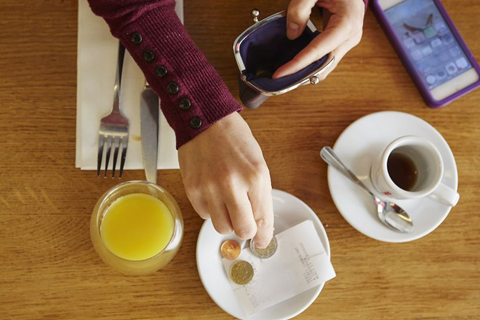
The GST is a broad-based tax of 10 percent on most goods, services and other items sold or consumed in Australia. Generally, organizations registered for GST include GST in the price they charge for their goods and services. Most of the basic food items, some education courses and materials, some medicines and health services, some childcare and religious and charitable activities, water, sewerage, drainage, farmland, exports, international mails, everything necessary for the business's continued operation, and precious metals are totally tax-free in Australia.

Apart from the complete course fee, the students need to meet expenses for their stay in Australia and traveling to different places in and around the nation. A single person living in Australia for studies needs at least AUD $20,290 every year excluding the tuition fee. The amount might differ depending on the courses they opt for, the kinds of accommodation or lifestyle they choose.
A married couple might need at least an AUD $7,100 extra every year for the purpose. Additional expenses might be added to the amount provided the couple has children. Accommodations cost might go up to AUD $3,040 a month for (flats or apartment accommodations).
The cost of food hovers around AUD $70 a week while transportation expenses for a week can reach the ceiling of AUD $50. Australians usually maintain a very high standard of living. Apparels and personal belongings are available at a wide range of prices. You can check the below table for reference. There are low priced products available for your convenience. The average cost of living for an adult is AUD $20,290, while the same for a child is AUD $3,040.

International students are required to join Overseas Student Health Cover that is a private health insurance scheme administered by different banks in Australia. It offers the most reliable service by covering your hospital medical treatment, prescription medicines, out of hospital medical treatments and emergency ambulance assistance while you study in Australia.
OSHC is a compulsory condition of a Student Visa. Overseas students should continue their OSHC to avoid visa cancellation.
You will need to pay the OSHC premium at the same time of the tuition fees.
For further information please check:
http://oshc.bupa.com.au/get-bupa
https://oshcaustralia.com.au/en

Around 50,000 students from all over the world pour into Australia every year, while at least 15,000 of them are from the Asia Pacific. There are valid reasons for them to select Australia as the place for them to continue with their studies. Let us have a look at a few of them,
